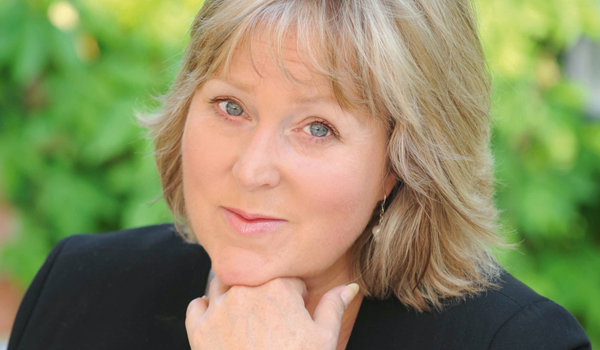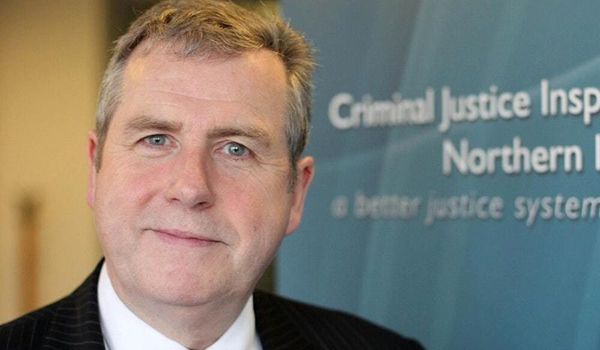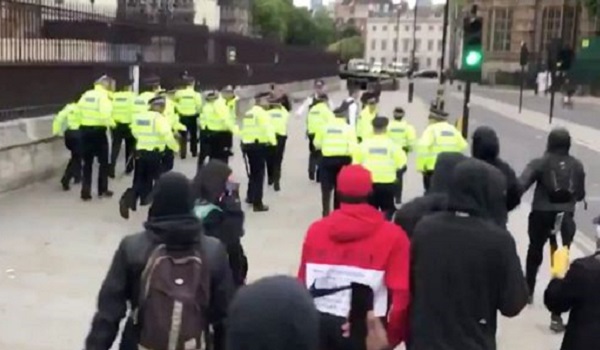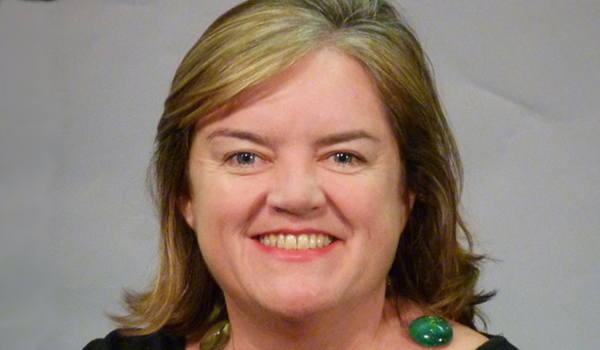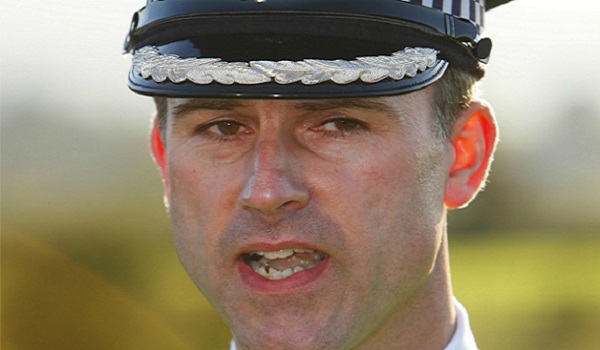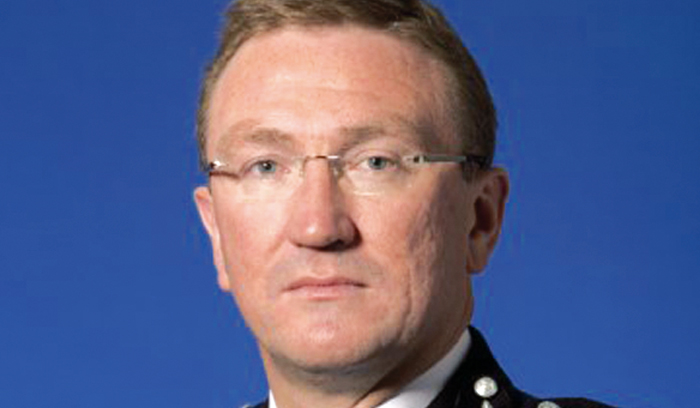Bedfordshire PCC bids farewell to chief constable and explains the partnership approach that’s brought success to Bedfordshire
Bedfordshire’s Police and Crime Commissioner, Kathryn Holloway, and her outgoing chief constable, Jon Boutcher, are known among both police chiefs and PCCs for having arguably the strongest professional relationship and personal friendship in policing in England and Wales.
Mrs Holloway acknowledges the decisive leadership of Mr Boutcher and her own approach to the PCC role as the reason for their success in many aspects.
Their work “shoulder to shoulder for three years, robustly standing up to government, critics and even the police watchdog, when it’s been right to do so”, has been “a winning formula” delivering results for Bedfordshire Police, she explains.
This success includes a £4.571 million unique Special Grant in December 2018 to cover the costs incurred in fighting unprecedented gang, gun and knife crime. Policing Minister, Nick Hurd, acknowledged to the PCC – and in the House of Commons – his intention to correct Bedfordshire Police’s historically low core budget at the next Spending Review.
The impressive success has also seen the Bedfordshire Police achieve an uplift in Her Majesty’s Inspectorate of Constabulary and Fire and Rescue Services (HMICFRS) grades for Effectiveness last year, which showed it to be the most improved of any force in England and Wales.
“Jon Boutcher has been an outstanding leader and Chief at Bedfordshire Police, out there front and centre when things get tough. He supplies top cover, whenever appropriate, to his officers, yet doesn’t hold back from condemnation in the thankfully rare circumstances when their position of trust has been abused,” said Ms Holloway.
“I’ve worked with multiple Chiefs across the country at different times, and I’ve never known anyone to walk the floors as Jon does. He’s supported me in bucking a trend and returning Community Policing to the county. Above all, he has personally reached out to the many diverse communities in a county where in excess of 100 languages are spoken to build bonds of trust that would be the envy of any force in the country.”
She added that the relationship between a PCC and chief constable is clearly key to successful professional delivery in the role: “In short, they have to get on well. I advised the boards of some of the largest companies in the UK for 17 years before becoming PCC and I know, for certain, that if the chair and CEO don’t have a meeting of minds and personalities, one generally leaves and little gets done in the interim! I’ve enjoyed an exceptionally positive relationship with my current chief and am seeking another now.
“My own version of ‘holding to account’ is very definitely to support a chief and the force to positive change, not a hostile and adversarial one, and the results speak for themselves.”
Ms Holloway has informally discussed the need to attract the widest possible range of quality applicants to a chief constable’s role, whatever the high quality of internal candidates, with both the College of Policing and HMICFRS.
“I’ve suggested to Mike Cunningham [College chief executive] that it can have a real role to play in future in making sure that there are regular formal and informal opportunities for PCCs to meet with those on Senior Leadership courses so that each can set out their stall in terms of their priorities and approaches to the top job since the relationship is so critical.
“Similarly, I’ve talked with Bedfordshire’s current HMI, Matt Parr, of the need to widen the pool, even though any wise chief creates a strong legacy position and Jon Boutcher has been no exception at Bedfordshire Police.
“Bedfordshire’s current deputy chief constable has told me that he, too, would welcome strong competition for the role, so for all concerned it’s essential that no recruitment process looks as though it’s a done deal before it even starts.
“That’s precisely why I want to create a recruitment process which provides every single candidate with the prospect of development, irrespective of whether on not they succeed in being appointed,” she said.
Mrs Holloway has written to key stakeholders across Bedfordshire to explain the qualities she considers essential for a chief constable in the county and outlined a process to put each of these to the test, even inviting them to volunteer to be part of a public panel.
She wrote that “any chief constable needs strong interpersonal skills, must make effective strategic and commercial judgments, has to be an accomplished communicator – especially under pressure in both the regional and national media – and must be able to reach out to all our residents”.
“Rather than holding an interview panel, behind closed doors, I have designed a recruitment process which is intended to test all these areas and to produce a professional development plan with advice for all contenders, so that all benefit, whether or not they are promoted as Bedfordshire’s chief constable.
“This will be opened with a series of one to one interviews with myself, the politically independent chair of the Police and Crime Panel, a chief officer leading one of the county’s collaborative blue light services and a business leader who works outside politics and has proven commercial acumen. Feedback will be anonymised and a report will be produced for each candidate to indicate perceived areas of strength and those for improvement.
“There will be two media interviews with a former national news journalist (a live down the line television interview by earpiece to an unseen presenter and a face to face recorded interview with the reporter) on the same subject, but at different stages of an unfolding emergency scenario. Performances will then be analysed with the candidates so that they can benefit from expert scrutiny.
“Finally, the candidates will have the chance to address an audience of partners and residents from across Bedfordshire, to set out their own vision for the future of the force – and how they intend to secure the achievements so far and build on them – before taking questions. Audience members will be asked to leave anonymous comments regarding what they have heard and these will be collated and fed back to participants as part of their development plan.”
The Bedfordshire OPCC is also to offer a familiarisation day to external candidates, comprising of an introduction from the PCC and input on Community Policing, the force’s international award-winning Cohesion Team and financial information. Ms Holloway also intends to offer presentations from the collaborated Eastern Region Special Operations Unit (ERSOU) which the Bedfordshire chief constable leads on behalf of seven forces from Norfolk to Kent and the Joint Protective Services of Bedfordshire, Hertfordshire and Cambridge, for which Bedfordshire is also the lead coordinating force.
In advance of advertisements appearing for the Bedfordshire role, prospective candidates can seek clarification or information from Bedfordshire OPCC’s Chief of Staff at clare.kelly@bedfordshire.pnn.police.uk


